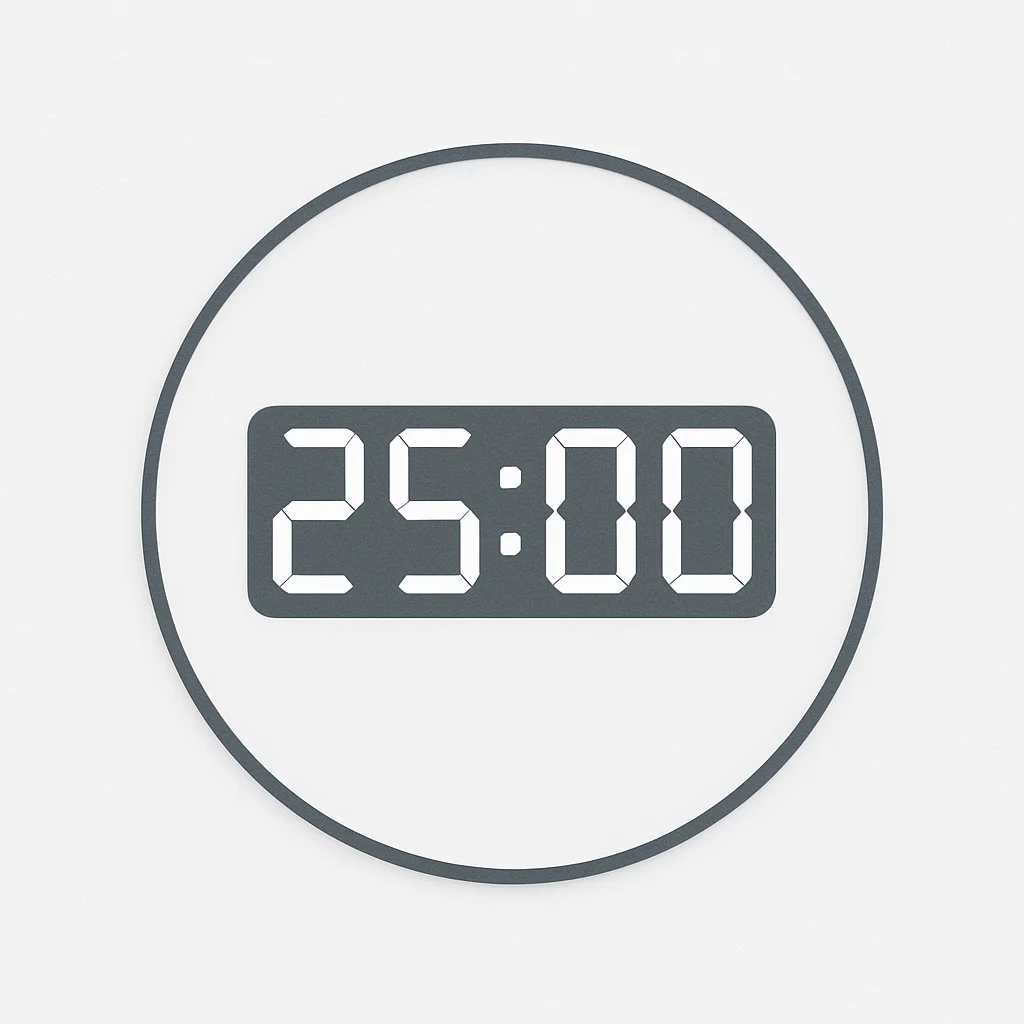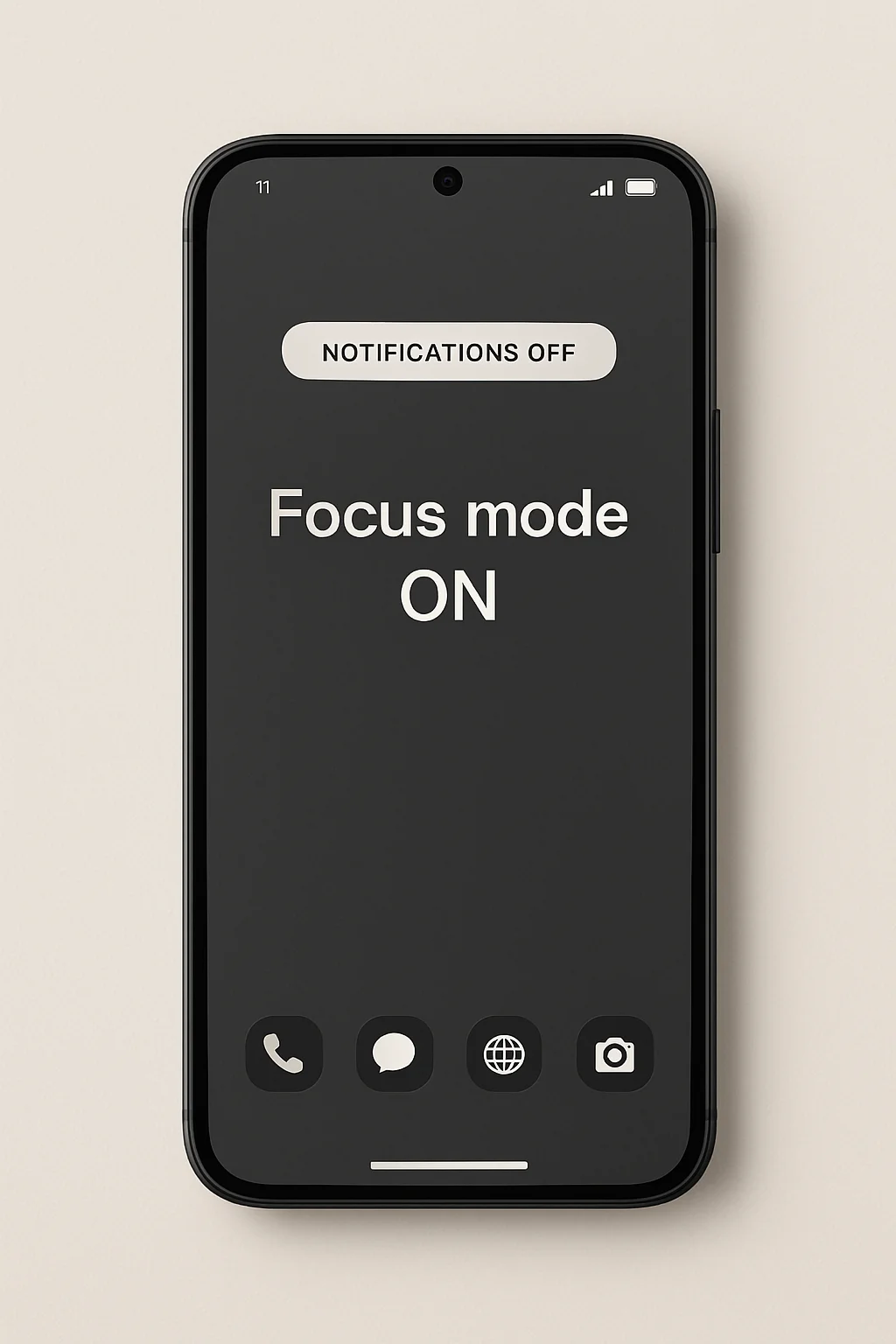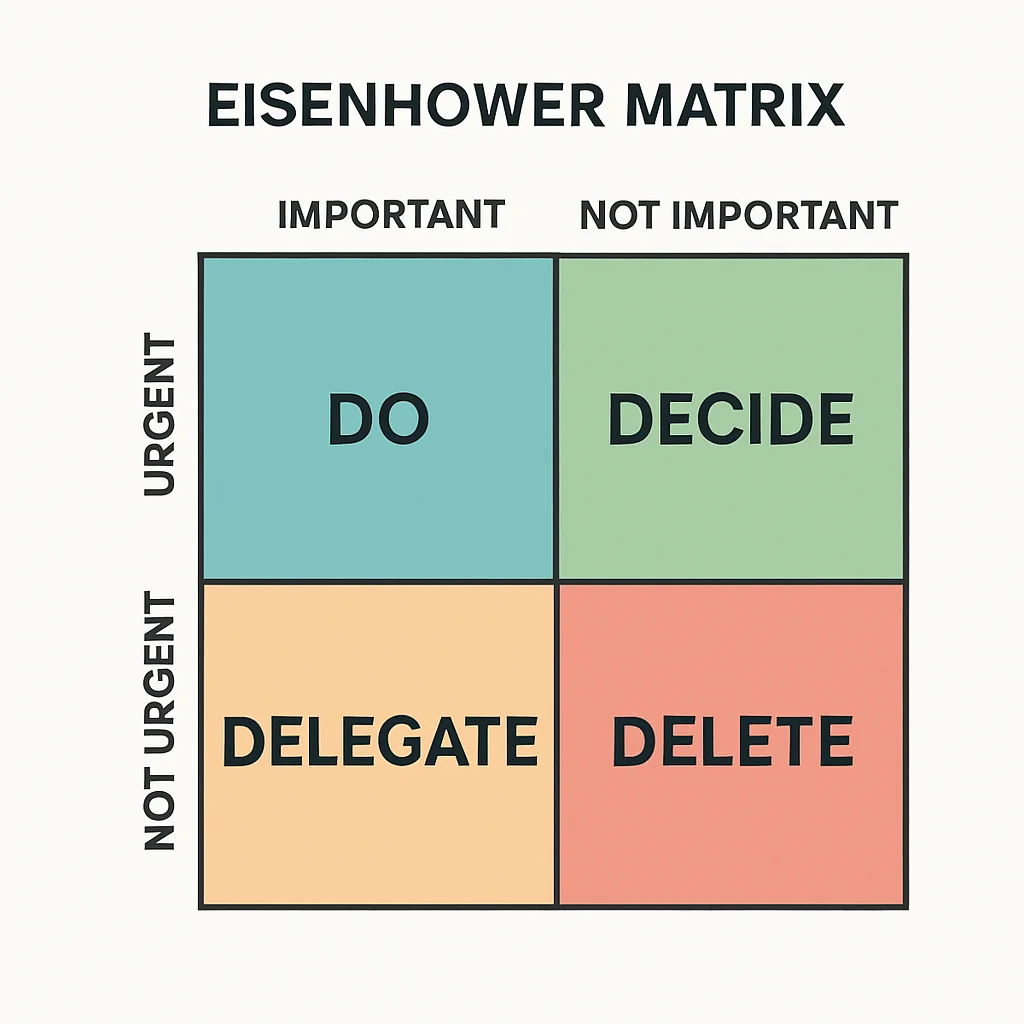Written by the Kairu Team
This article was created by the Kairu team. Kairu helps you stay focused and productive with smart tools, insights, and community support.
Learn more and try Kairu freeHow to Stay Focused: A Complete Guide to Deep Work
Learn proven strategies to eliminate distractions, build concentration, and achieve deep work in today's world of constant interruptions.
In today's world of constant notifications, endless scrolling, and competing demands for our attention, maintaining focus has become one of the most valuable skills you can develop. Whether you're a student, professional, or entrepreneur, your ability to concentrate deeply on important tasks directly impacts your success and satisfaction.
This comprehensive guide will teach you the science behind focus, practical strategies to eliminate distractions, and techniques to build lasting concentration habits that will transform your productivity.

A clean, distraction-free workspace enhances your ability to stay focused
The Science of Focus
Understanding how focus works is the first step to improving it. Your brain has two main attention systems:
- Bottom-up attention: Automatic responses to stimuli (like notifications)
- Top-down attention: Deliberate focus on chosen tasks
When you're constantly switching between tasks or responding to interruptions, you're primarily using bottom-up attention, which is mentally exhausting and reduces your ability to think deeply.
Creating a Focus-Friendly Environment
Your physical environment plays a crucial role in your ability to concentrate. Here's how to optimize it:
Physical Space
- Declutter your workspace: Remove unnecessary items that compete for attention
- Control lighting: Use natural light when possible, avoid harsh fluorescent lighting
- Manage temperature: Keep your space slightly cool (65-70°F) for optimal alertness
- Reduce noise: Use noise-canceling headphones or white noise if needed

Digital Distraction Management
Digital distractions are often the biggest barrier to deep focus. Here's how to take control:
1. Use the Pomodoro Technique
Work in focused 25-minute blocks with 5-minute breaks:
Work Session (25 minutes)
- Focus on one task only
- Ignore all distractions
- Work with full concentration
- Don't check email or messages
Break (5 minutes)
- Stand up and stretch
- Get a drink of water
- Look away from screens
- Reset for next session

25-minute focused work sessions
2. Implement Digital Minimalism
Reduce your digital footprint and reclaim your attention:
- Turn off notifications: Disable all non-essential notifications
- Use focus modes: Enable Do Not Disturb during work sessions
- Remove social media apps: Access them only through browsers
- Set screen time limits: Use built-in tools to track and limit usage

Digital minimalism setup
Single-Tasking: The Power of One Thing
Multitasking is a myth. Your brain can only truly focus on one complex task at a time. Here's how to embrace single-tasking:

Single-tasking focus
Benefits of Single-Tasking
- Higher quality work: You produce better results when fully focused
- Faster completion: Tasks take less time when you're not switching
- Reduced stress: Less mental overhead from context switching
- Better memory: You retain information more effectively
How to Practice Single-Tasking
- Choose one priority: Pick the most important task for your current session
- Clear your workspace: Remove everything except what you need
- Set a time limit: Commit to working on this task for a specific duration
- Resist the urge to switch: When distractions arise, note them and return to your task
Mindfulness and Focus
Mindfulness practices can significantly improve your ability to concentrate and maintain focus:

Mindfulness practice
Simple Mindfulness Techniques
- Breathing exercises: Take 5-10 deep breaths before starting work
- Body scanning: Check in with your physical sensations
- Present moment awareness: Focus on what you're doing right now
- Thought observation: Notice when your mind wanders and gently return to your task
Optimizing Your Energy for Focus
Your physical and mental energy levels directly impact your ability to concentrate:

Optimizing energy levels
Energy Management Strategies
- Prioritize sleep: Aim for 7-9 hours of quality sleep
- Exercise regularly: Physical activity improves cognitive function
- Eat for focus: Choose foods that provide steady energy
- Stay hydrated: Dehydration impairs concentration
- Take regular breaks: Rest prevents mental fatigue
Deep Work: The Ultimate Focus Practice
Deep work is the ability to focus without distraction on a cognitively demanding task. It's a skill that can be developed:

Deep concentration
Deep Work Principles
- Work for extended periods: Aim for 90-minute focused sessions
- Eliminate all distractions: Create a distraction-free environment
- Focus on the most important tasks: Don't waste deep work on shallow tasks
- Measure your deep work hours: Track how much time you spend in deep focus
Task Prioritization for Better Focus
Not all tasks require the same level of focus. Learn to prioritize effectively:

Eisenhower Matrix for task prioritization
The Eisenhower Matrix
Urgent & Important
Do these first
Important, Not Urgent
Schedule these
Urgent, Not Important
Delegate these
Not Urgent, Not Important
Eliminate these
Building Focus Habits
Focus is a skill that improves with practice. Here's how to build lasting focus habits:
Start Small
- Begin with 5 minutes: Start with very short focused sessions
- Gradually increase: Add 5 minutes each week
- Be consistent: Practice focus at the same time each day
- Track your progress: Monitor your focus sessions
Create Focus Rituals
- Pre-focus routine: Develop a consistent ritual before focused work
- Environment setup: Prepare your space for deep work
- Mental preparation: Take a few minutes to clear your mind
- Post-focus reflection: Review what you accomplished
Overcoming Common Focus Challenges
When Your Mind Wanders
It's normal for your mind to wander. Here's how to handle it:
- Notice without judgment: Acknowledge the distraction without getting frustrated
- Gently return: Bring your attention back to your task
- Use anchors: Focus on your breath or a physical sensation
- Practice regularly: The more you practice, the easier it becomes
When You're Tired
Fatigue significantly impacts focus. Here's what to do:
- Take a short nap: 10-20 minutes can restore alertness
- Move your body: Light exercise increases energy
- Change your environment: Move to a different location
- Switch to easier tasks: Save demanding work for when you're fresh
Technology Tools for Focus
Use technology to support your focus, not distract from it:
Focus Apps
- Forest: Plant trees by staying focused
- Freedom: Block distracting websites and apps
- RescueTime: Track how you spend your time
- Focus@Will: Music designed to improve concentration
Browser Extensions
- StayFocusd: Limit time on distracting websites
- Block Site: Block specific websites during work hours
- Momentum: Replace new tab page with focus-friendly dashboard
Measuring Your Focus Progress
Track your focus improvement to stay motivated:
What to Measure
- Deep work hours: Time spent in focused concentration
- Focus sessions: Number of uninterrupted work periods
- Task completion: How many important tasks you finish
- Distraction frequency: How often you get interrupted
Tracking Methods
- Time tracking apps: Use tools like Toggl or RescueTime
- Focus journal: Write down your focus sessions and observations
- Weekly reviews: Reflect on your focus patterns
- Progress photos: Visual reminders of your improvement
Conclusion
Focus is not about having superhuman concentration or eliminating all distractions. It's about creating the right conditions for deep work and developing the habits that support sustained attention.
Start with one strategy from this guide and practice it consistently. As you build your focus muscle, you'll find that you can concentrate more deeply, work more efficiently, and achieve more meaningful results.
Remember that focus is a skill that develops over time. Be patient with yourself, celebrate small improvements, and keep practicing. The ability to focus deeply is one of the most valuable skills you can develop in today's distracted world.
Ready to transform your focus?
Choose one strategy from this guide and start practicing today. Your future self will thank you.